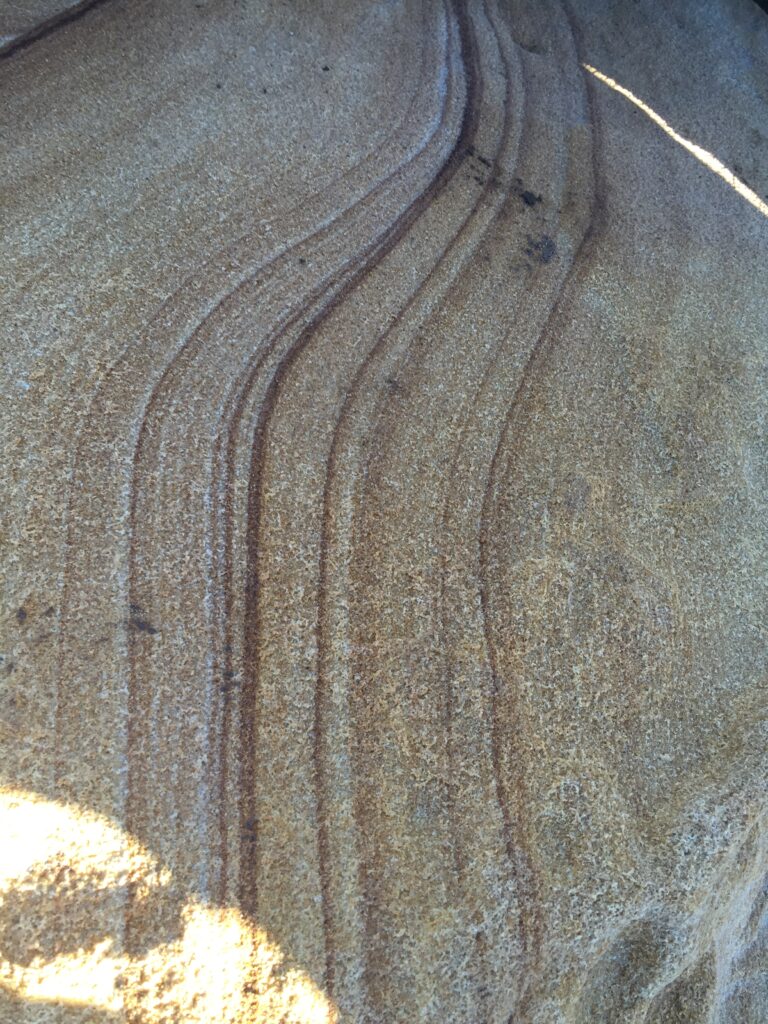A reflection on 2 Samuel 11:1-5 and Matthew 1:6b for Sunday, January 31 at Mosaic Baptist Church

In the spring of the year, the time when kings go out to battle, David sent Joab with his officers and all Israel with him; they ravaged the Ammonites, and besieged Rabbah. But David remained at Jerusalem.
It happened, late one afternoon, when David rose from his couch and was walking about on the roof of the king’s house, that he saw from the roof a woman bathing; the woman was very beautiful. David sent someone to inquire about the woman. It was reported, ‘This is Bathsheba daughter of Eliam, the wife of Uriah the Hittite.’ So David sent messengers to fetch her, and she came to him, and he lay with her. (Now she was purifying herself after her period.) Then she returned to her house. The woman conceived; and she sent and told David, ‘I am pregnant.’
2 Samuel 11:1-5 (NRSVA)
And David was the father of Solomon by the wife of Uriah…
Matthew 1:6b (NRSVA)
Matthew, it seems, is reluctant to use the name ‘Bathsheba’. As we have seen, this is not because the gospel author is shy about placing women in his family tree. His use of Tamar, Rahab, and Ruth have eliminated that possibility.
Yet when it comes to Bathsheba, she is referred to through her first husband, Uriah.
Some have speculated that Matthew is not impressed by her – asking what this woman was doing bathing so openly next to the king’s palace. In this scenario his reluctance to use her name highlights her guilt.
I am not convinced by this. We find most of what we know about Bathsheba in 2 Samuel 11-12. It surprises most because of how little is said about Bathsheba and her actions. The action – and the guilt it names – is never placed on Bathsheba. It is squarely – and always – placed on King David himself.
And so I wonder if Matthew’s pointing to ‘the wife of Uriah’ is not a reluctance to name Bathsheba, but a willingness to point to one of the lowest points in the life of Israel’s greatest – and most faithful – king.
David took Bathsheba. He then murdered her decorated soldier and husband, Uriah. It took the brave prophet Nathan to confront and reveal the king’s despicable action.
Bathsheba, however, was the first to confront David. It was she who sent the first embarrassing and revealing message to the king. Bathsheba then mourned her husband and moved into the palace. There she must have suffered the indignity of the rumours that surrounded. Her first child died in infancy.
And her second, Solomon – although never the first-born – replaced David as king.
The other place we learn about Bathsheba is the opening chapters of 1 Kings. Now David is old. His older sons vie for his throne. Alliances are made. Princes are killed. A nation waits nervously.
And Bathsheba plans. It is, however, far from the backstabbing schemes others plot.
Queen Bathsheba simply, carefully, and respectfully reminds David of his previous promise to anoint the young man, Solomon, as his successor.
So once more, in the opening genealogy of Matthew we have a reminder of an unusual birth, a strong woman, and a lineage that took an unexpected turn.
We also have a raw and open scandal.
And that is another aspect of this gospel message we need to be prepared for. In this telling, Jesus will encounter people – many of them will be women – who are abused by men and the system they are invested in maintaining.
Some of these women will join him and become disciples. Others will be named and celebrated for their faith. Some will be called from a life of invisibility. A few will be found at the foot of the cross.
And all of them will be invited and welcome in the kingdom Jesus proclaimed.
Conversation Starters:
What do you make of Matthew’s reluctance to name Bathsheba?
Where do you see Jesus addressing power imbalance in the gospel of Matthew?
Do you read 2 Samuel 11-12 as a story that is mainly about Bathsheba or David? Why do you think many are reluctant to see Bathsheba as abused by David?